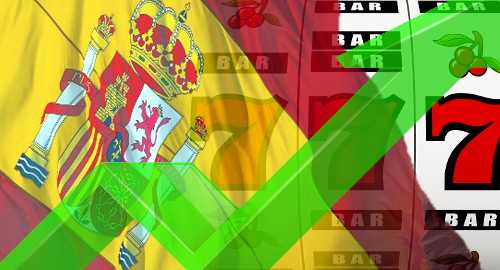Spanish Online Gambling Market
Spain’s regulated online gaming market has reported a 5.4% year-on-year increase in gross gaming revenue for the third quarter of 2019, with the growth of online casino again supported by the recovery of the sports betting vertical.
Total GGR for the three months to 30 September climbed to €191.7m (£163.3m/$211.1m), which also represented a 7.5% quarter-on-quarter improvement, the figures from the Dirección General de Ordenacion del Juego (DGOJ) show.
- These figures show that the Spanish online gambling market is quickly reaching maturity, after first being regulated in 2013. Attracting new players is becoming increasingly costly for operators. The dramatic rise in marketing expenditures in 2018 is obviously not sustainable in the long run.
- For Mikel Lopez de Torre, chairman of Spanish online gambling trade body Jdigital, the Spanish online gaming and betting market is ripe for consolidation as it matures in the coming years.
- Having a sole corporate purpose to organise, market and operate gambling activities. A minimum total and paid-up share capital of €100,000 to request a general licence for bets and other games, or €60,000 to request only a general licence for contests.
- Bwin, the Austrian online gaming company that sponsors Real Madrid football club, is said to be interested in buying a stake in Spain's national lottery, which is selling a 30% stake to raise €5bn.
This was due in part to online sports betting rebounding after a difficult second quarter, in which the market suffered from the lack of a major summer sporting event. Revenue for Q3 rose to €100.8m, a 3.2% year-on-year improvement, and a 16.6% advance on Q2.
Pre-match betting, which had suffered in particular from the decline in activity for the prior quarter, saw its contribution grow to €40.1m, though this still lagged behind Q3 2018’s figure. However, it was more than offset by growth in live betting revenue, which increased to €57.9m.
Online casino, contributed €66.5m to the quarterly total. This represented a 3.6% decline compared to the second quarter, though a 9.3% jump form the prior year. The quarter-on-quarter drop was down to a fall in revenue from online slots, which amounted to €38.4m in Q3, followed by marginal declines in blackjack and roulette revenue, offset in part by an increased contribution from live roulette.
Spanish Online Gambling Marketplace


Poker remains the third biggest product in terms of revenue, with GGR rising 3.4% to €20.5m, with bingo’s contribution up marginally to €3.2m. Contests, meanwhile, saw the largest growth from the lowest base, with revenue up 128.2% year-on-year to €726,423.
The start of the European football season during the quarter prompted a hike in marketing spend by Spanish licensees, with total expenditure rising 6.1% to €82.3m. Operators spent €5.5m on sponsorship deals – up 45.9% from Q3 2018 – with affiliate marketing spend climbing 25.1% to €9.6m.
Bonus offers accounted for €31.7m of the total, though advertising spend declined 3.7% year-on-year to €35.5m. While it remains the largest source of marketing costs, the decline comes amid rumours that new advertising restrictions on licensed operators are all but inevitable. Operators have already agreed to adhere to a series of new voluntary restrictions, including a whistle-to-whistle ban on advertising around live sporting events.

Spain’s regulated online gaming market has reported a 5.4% year-on-year increase in gross gaming revenue for the third quarter of 2019, with the growth of online casino again supported by the recovery of the sports betting vertical.
Total GGR for the three months to 30 September climbed to €191.7m (£163.3m/$211.1m), which also represented a 7.5% quarter-on-quarter improvement, the figures from the Dirección General de Ordenacion del Juego (DGOJ) show.
This was due in part to online sports betting rebounding after a difficult second quarter, in which the market suffered from the lack of a major summer sporting event. Revenue for Q3 rose to €100.8m, a 3.2% year-on-year improvement, and a 16.6% advance on Q2.
Pre-match betting, which had suffered in particular from the decline in activity for the prior quarter, saw its contribution grow to €40.1m, though this still lagged behind Q3 2018’s figure. However, it was more than offset by growth in live betting revenue, which increased to €57.9m.
While the gambling operator revenues in Spain have dropped significantly since last year, the market has managed to curb job loss statistics to 15%. Have Spanish operators got the resilience to recover fully with yet more obstacles on the way?
Online casino, contributed €66.5m to the quarterly total. This represented a 3.6% decline compared to the second quarter, though a 9.3% jump form the prior year. The quarter-on-quarter drop was down to a fall in revenue from online slots, which amounted to €38.4m in Q3, followed by marginal declines in blackjack and roulette revenue, offset in part by an increased contribution from live roulette.
Poker remains the third biggest product in terms of revenue, with GGR rising 3.4% to €20.5m, with bingo’s contribution up marginally to €3.2m. Contests, meanwhile, saw the largest growth from the lowest base, with revenue up 128.2% year-on-year to €726,423.
The start of the European football season during the quarter prompted a hike in marketing spend by Spanish licensees, with total expenditure rising 6.1% to €82.3m. Operators spent €5.5m on sponsorship deals – up 45.9% from Q3 2018 – with affiliate marketing spend climbing 25.1% to €9.6m.
Spanish Online Gambling Markets
Bonus offers accounted for €31.7m of the total, though advertising spend declined 3.7% year-on-year to €35.5m. While it remains the largest source of marketing costs, the decline comes amid rumours that new advertising restrictions on licensed operators are all but inevitable. Operators have already agreed to adhere to a series of new voluntary restrictions, including a whistle-to-whistle ban on advertising around live sporting events.